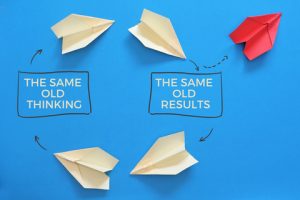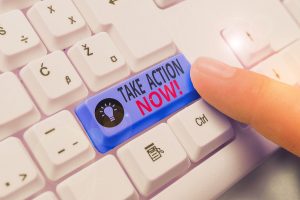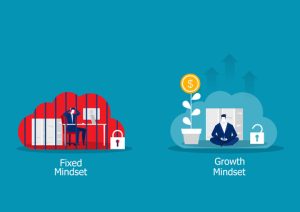There’s a moment in everyone’s life when they realize they’ve been living on autopilot.
Maybe it’s sitting in traffic on the way to a job you don’t love, scrolling through social media for the third hour straight, or catching yourself saying “I should really…” for the hundredth time about something you never actually do.
That moment of recognition, the sudden awareness that you’re drifting rather than directing, is where the journey toward living with agency begins.
Agency isn’t just a psychological concept or self-help buzzword.
It’s the fundamental difference between feeling like life is happening to you versus knowing that you’re actively shaping your experience.
It’s the bridge between where you are and where you want to be, built one intentional choice at a time.

Understanding Agency: More Than Just Control
Before diving into how to cultivate agency, it’s crucial to understand what it actually means.
Agency isn’t about controlling every outcome or having power over external circumstances.
Instead, it’s about recognizing and exercising your capacity to make meaningful choices within whatever constraints you face.
Think of agency as your personal sovereignty, your ability to act according to your values, goals, and authentic self rather than simply reacting to whatever comes your way.
It’s the difference between being a passenger in your own life and being the driver, even when you can’t control the traffic, weather, or road conditions.
This distinction matters because many people confuse agency with control, leading to frustration when they can’t manipulate outcomes.
True agency operates in the space between stimulus and response, that crucial gap where choice lives.
Viktor Frankl captured this beautifully when he wrote that between stimulus and response lies our freedom to choose our response, and in that choice lies our growth and happiness.

The Cost of Living Without Agency
When we operate without agency, we essentially outsource our decision-making to external forces:
Other people’s expectations, societal pressures, past conditioning, or simple inertia.
This creates a cascade of problems that compound over time.
First, there’s the emotional toll. Living reactively breeds resentment, anxiety, and a persistent sense that life is happening to you rather than being created by you.
You might find yourself constantly frustrated by circumstances, feeling powerless to change your situation, or experiencing what psychologists call “learned helplessness”—the belief that your actions don’t matter.
Second, without agency, you miss opportunities for growth and fulfillment.
When you’re not actively choosing your path, you tend to default to the familiar, safe, or expected, even when these choices don’t serve your deeper aspirations.
You might stay in relationships that drain you, pursue careers that feel meaningless, or engage in habits that undermine your well-being simply because making a change feels overwhelming or uncertain.
Third, the absence of agency creates a feedback loop of diminishing confidence.
Each time you avoid making a choice or defer to external forces, you reinforce the belief that you’re not capable of directing your own life.
This erosion of self-trust makes future decisions feel even more daunting, creating a cycle that’s increasingly difficult to break.

The Foundations of Personal Agency
Building agency isn’t about making dramatic life changes overnight.
It’s about developing the fundamental capacities that enable you to make conscious choices aligned with your values and goals.
These foundations work together to create a stable platform from which you can navigate life’s complexities with intention and confidence.
Self-Awareness as the Starting Point
You can’t exercise agency over things you’re not aware of.
This means developing the ability to observe your thoughts, emotions, reactions, and patterns without immediately being swept away by them.
Self-awareness involves noticing when you’re operating on autopilot, recognizing your triggers and habitual responses, and understanding what truly matters to you beneath the noise of daily demands.
This awareness extends to understanding your own values, strengths, limitations, and aspirations.
Many people live their entire lives without clearly articulating what they actually want or why they want it.
They pursue goals inherited from family, culture, or peer groups without examining whether these align with their authentic selves.
Emotional Regulation and Resilience
Agency requires the ability to remain centered and thoughtful even when facing stress, uncertainty, or strong emotions.
This doesn’t mean suppressing feelings or becoming emotionally numb. Instead, it means developing the capacity to experience emotions fully while maintaining enough space to choose how you respond.
Emotional regulation is a skill that can be developed through practices like mindfulness, breathing techniques, physical exercise, and cognitive reframing.
The goal isn’t to eliminate difficult emotions but to prevent them from hijacking your decision-making process.
Clarifying Your Values and Vision
Living with agency means making choices that align with your deepest values and long-term vision for your life.
This requires taking time to clarify what actually matters to you, not what you think should matter or what others expect to matter.
Values aren’t rules or moral judgments; they’re the principles that guide your choices when you’re at your best.
They might include things like creativity, connection, growth, justice, adventure, or peace.
When you’re clear about your values, decisions become easier because you have a consistent framework for evaluation.
Similarly, having a vision for your life, even a rough one, provides direction for your choices.
This doesn’t mean having a rigid five-year plan, but rather a sense of the kind of person you want to become and the kind of life you want to create.

Practical Strategies for Developing Agency
Understanding agency conceptually is one thing; developing it practically is another.
The following strategies provide concrete ways to strengthen your capacity for intentional living.
Start with Small, Daily Choices
Agency is built through practice, and the best place to start is with the small decisions you make every day.
Instead of automatically reaching for your phone when you wake up, pause and choose how you want to begin your day.
Instead of eating lunch at your desk while working, decide to take a proper break.
These micro-choices might seem insignificant, but they train your agency muscles.
The key is to approach these small decisions consciously rather than automatically.
Before acting, pause and ask yourself: “What do I actually want to do here?” or “What choice would align with how I want to feel today?”
This simple practice of pausing before acting builds the neural pathways associated with intentional decision-making.
Challenge Automatic Assumptions
Much of our sense of powerlessness comes from accepting limitations that aren’t actually real.
We tell ourselves stories about what’s possible, what we’re capable of, or what we “have to” do without examining whether these stories are accurate.
Start questioning your automatic assumptions.
When you catch yourself thinking “I have to…” ask whether that’s really true.
When you assume something isn’t possible, investigate whether you’re dealing with actual constraints or imagined ones.
Often, what feels like an external requirement is actually a choice you’re making based on fear, habit, or unexamined beliefs.
Practice the Art of Boundary Setting
Agency often requires saying no to things that don’t serve you, even when saying yes would be easier or more popular.
This might mean declining social invitations when you need rest, pushing back on unreasonable work demands, or ending relationships that consistently drain your energy.
Boundary setting isn’t about being selfish or inflexible; it’s about protecting your capacity to make choices aligned with your values and goals.
Every yes to something that doesn’t serve you is a no to something that might.
Learning to set boundaries is learning to honor your own agency.
Embrace Uncertainty and Imperfection
One of the biggest obstacles to living with agency is the desire for certainty and perfection.
Many people avoid making choices because they can’t guarantee outcomes or because they’re afraid of making the “wrong” decision.
This perfectionism paradoxically leads to making no decisions at all, which is itself a choice, just not a conscious one.
Agency requires comfort with uncertainty and the acceptance that most decisions can be adjusted or reversed if they don’t work out.
It’s better to make an imperfect choice that you can learn from than to avoid choosing altogether.
Remember that inaction is also a choice, and often not a particularly good one.

Overcoming Common Obstacles
Even with the best intentions, developing agency isn’t always straightforward.
Several common obstacles can derail your progress, but understanding them helps you navigate around them.
Analysis Paralysis
Some people respond to the desire for agency by over-analyzing every decision.
They research endlessly, seek countless opinions, and create elaborate pro-and-con lists without ever actually choosing.
This gives the illusion of being thoughtful and responsible, but it’s actually another form of avoiding agency.
The antidote to analysis paralysis is setting decision deadlines and accepting that most choices don’t require perfect information.
Give yourself a reasonable amount of time to gather information, then commit to deciding by a specific date regardless of whether you feel completely certain.
People-Pleasing and External Validation
Many people struggle with agency because they’ve learned to prioritize others’ approval over their own judgment.
They make choices based on what others expect or want rather than what aligns with their own values and goals.
Breaking free from this pattern requires gradually shifting your source of validation from external to internal.
Start by making small choices based on your own preferences rather than what you think others want.
Notice the discomfort that arises when you prioritize your own judgment, and practice tolerating that discomfort without immediately reverting to people-pleasing.
Fear of Responsibility
Living with agency means accepting responsibility for your choices and their consequences.
This can feel overwhelming, especially if you’ve spent years blaming external circumstances for your unhappiness or lack of progress.
Remember that accepting responsibility isn’t the same as accepting blame.
Responsibility is empowering because it means you have the power to create change.
When you own your choices, you also own your capacity to make different choices in the future.
The Ripple Effects of Agentic Living
As you develop greater agency, you’ll likely notice changes that extend far beyond the specific decisions you make.
Living intentionally creates positive ripple effects that touch every area of your life.
Your relationships improve because you show up more authentically and set healthier boundaries.
Your work becomes more fulfilling because you align your career choices with your values rather than just defaulting to what’s expected or safe.
Your daily experience becomes richer because you’re actively engaging with life rather than passively letting it happen.
Perhaps most importantly, you develop a deeper sense of self-trust and confidence.
Each time you make a conscious choice and navigate its consequences, you prove to yourself that you’re capable of directing your own life.
This creates an upward spiral where agency breeds more agency.

Living Agency as a Lifelong Practice
Developing agency isn’t a destination you reach but a practice you cultivate throughout your life.
There will be times when you slip back into reactive patterns, and that’s normal.
The goal isn’t perfection but greater awareness and more frequent conscious choice-making.
Think of agency as a muscle that requires regular exercise to stay strong.
The more you practice making intentional choices, from small daily decisions to major life changes, the more natural it becomes.
Over time, living with agency shifts from being something you have to remember to do to being your default way of engaging with the world.
The transformation might not happen overnight, but it will happen.
Each conscious choice you make is a vote for the kind of person you want to become and the kind of life you want to create.
In a world that often feels chaotic and unpredictable, your agency is the one thing that truly belongs to you.
Use it wisely, use it boldly, and use it often. Your future self will thank you for taking the wheel.